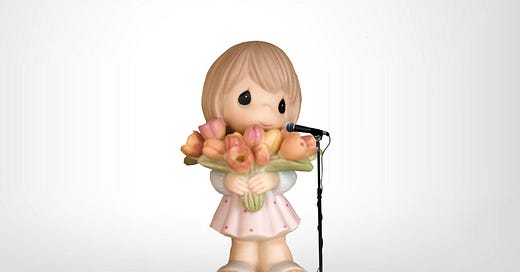The Religious Left is Turning Comedy into Christian Rock
This wave of censorship is different
I have said the n-word. I have argued at length that Gavroche -- the plucky street urchin from Les Mis -- should have been thrown in jail, because he’s a pickpocket. I have looked an 80 year-old woman straight in the eyes and said “Hey Betty White: Shut the fuck up.”
The only reason I haven’t suffered Hester Prynne-style banishment for these things is because I did them while I was doing standup. I was on stage, in the one spot on Earth where a person is encouraged -- and sometimes even mildly paid --to say the unsayable. People laughed when I said those things, because the irony was understood, the taboo-breaking was titillating, and -- most importantly -- because that old lady really did need to shut the fuck up. That crowd didn’t come to a hotel basement in rural Virginia and pay five dollars to listen to her.
Every comedian knows that comedy is going through...something. Matt Yglesias dubbed this era “The Great Awokening”, and, sure: Great Awokening, Itty-Bitty Cultural Revolution -- call it whatever you want. I’d like a name that captures how much the movement resembles a religion (more on that later), but I don’t really care about the name. What I care about is the climate of censorship that’s changing comedy.




